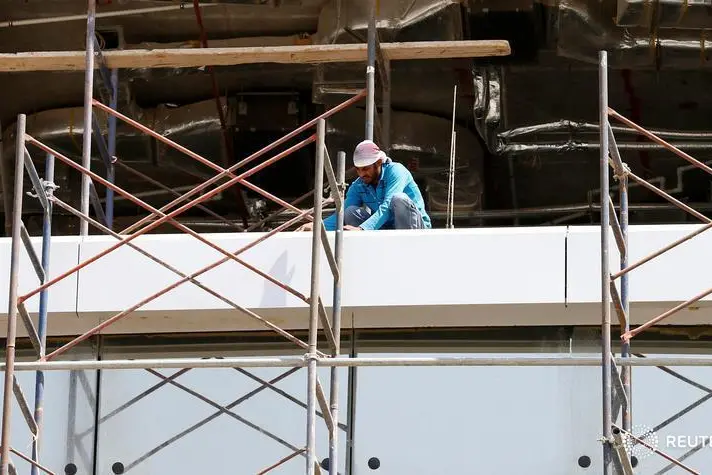PHOTO
Construction activity in the Middle East, with the exception of Saudi Arabia, is expected to remain soft in the near-term due to reduction in business enquiries and workloads in the first quarter, according to the latest RICS Middle East Construction and Infrastructure survey.
In its statement on the survey results, RICS pointed out that while subdued oil prices contributed to the weak first quarter sentiment, there was a general reduction in new business enquiries and workloads in Oman, UAE and Qatar, which signals a near-term softening of activity.
For the next 12 months, tender price predictions for building and civil engineering in Oman, UAE and Qatar indicate a decline, the statement said, with more than 70 percent of survey participants citing competition and lack of demand as a constraint on activity.
Respondents also indicated further margin deterioration in the region over the next year due to increased cost of materials and the difficulty of passing the increase onto clients, and more than 90 percent also cited financial constraints as a drag on activity.
Saudi Arabia was the only exception to the region-wide softening trend with respondents reporting a sharp increase in business enquiries and workloads, according to the RICS statement.
“This solid pipeline of new activity [in Saudi Arabia] appears to support the outlook for an increase in workloads over the next 12 months, as well as headcount, as 68 percent of respondents stated to increase hiring over the year,” the statement said.
It said the likelihood of oil prices increasing in the second quarter as US sanctions and drying up of global spare capacity tighten global oil supply could translate into a “more optimistic workload outlook” over the next 12 months, particularly in Saudi Arabia.
“Headline workloads (in net balance terms) are also expected to increase in the UAE (15 percent) and Qatar (19 percent) over the next year, although at a more modest pace,” it indicated.
While workloads shrunk in private commercial and industrial projects in the first quarter, they increased in roads, water and utility projects, the statement said, pointing out that infrastructure workloads in Qatar – especially, road, airport and utility projects- remained upbeat compared to other market segments.
In contrast, respondents reported a decline in work on infrastructure projects in Oman, with work on airports, road, railway and harbours/ports declining during the first quarter. Majority of the survey participants in Saudi Arabia, Oman, UAE and Qatar also noted the need for new projects over the repair and maintenance of existing infrastructure.
The RICS Middle East and Asia-Pacific Construction and Infrastructure Survey is prepared every quarter to identify the trends in the construction and infrastructure markets.
(Writing by Anoop Menon; Editing by Mily Chakrabarty)
(anoop.menon@refinitiv.com)
Our Standards: The Thomson Reuters Trust Principles
Disclaimer: This article is provided for informational purposes only. The content does not provide tax, legal or investment advice or opinion regarding the suitability, value or profitability of any particular security, portfolio or investment strategy. Read our full disclaimer policy here.
For more data, analytics, tools and news on projects in the Middle East visit the Thomson Reuters Projects portal
© Thomson Reuters Projects News 2019





















